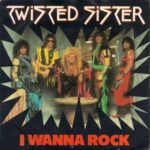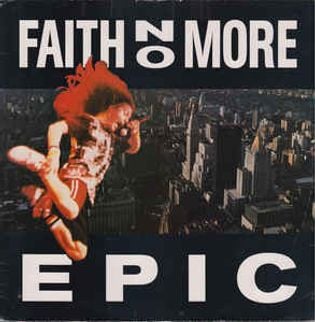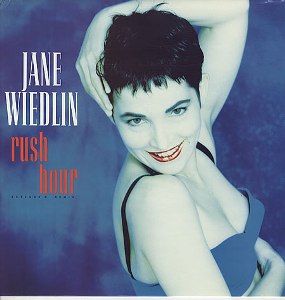 In 1984, the world of heavy metal and hard rock was dominated by soaring guitar riffs, flamboyant stage antics, and a growing youth culture that craved rebellion and self-expression. Amid this energetic landscape, Twisted Sister released “I Wanna Rock,” a song that would become one of the defining anthems of the 1980s. Bursting with unapologetic attitude, raucous vocals, and a guitar-driven assault that commands attention from the very first chord, the track perfectly encapsulates the spirit of teenage rebellion and the desire for freedom. Its catchy, shouted chorus—“I wanna rock!”—transcended the boundaries of conventional rock, turning it into a rallying cry for a generation eager to challenge authority and embrace individuality.
In 1984, the world of heavy metal and hard rock was dominated by soaring guitar riffs, flamboyant stage antics, and a growing youth culture that craved rebellion and self-expression. Amid this energetic landscape, Twisted Sister released “I Wanna Rock,” a song that would become one of the defining anthems of the 1980s. Bursting with unapologetic attitude, raucous vocals, and a guitar-driven assault that commands attention from the very first chord, the track perfectly encapsulates the spirit of teenage rebellion and the desire for freedom. Its catchy, shouted chorus—“I wanna rock!”—transcended the boundaries of conventional rock, turning it into a rallying cry for a generation eager to challenge authority and embrace individuality.
“I Wanna Rock” is emblematic of Twisted Sister’s larger-than-life persona and theatrical approach to heavy metal. Fronted by the indomitable Dee Snider, the band fused aggressive riffs with tongue-in-cheek humor, making their music both confrontational and accessible. The song opens with an iconic spoken-word intro that sets the tone: a rebellious teen railing against the constraints of homework, parents, and school authorities. From there, the track erupts into a full-throttle, high-energy metal anthem, marrying the accessibility of pop sensibilities with the raw power and aggression of hard rock.
Twisted Sister and the Rise of Glam Metal
By the early 1980s, Twisted Sister had already carved out a reputation for their over-the-top costumes, makeup, and theatrical stage presence. The band’s sound, a combination of glam metal and traditional hard rock, was designed to shock, entertain, and energize. With Stay Hungry, the 1984 album that features “I Wanna Rock,” Twisted Sister found the perfect vehicle to reach a mass audience, balancing aggressive musicianship with hooks and melodies that ensured commercial success.
“I Wanna Rock” exemplifies this approach. The song’s structure is straightforward yet effective: verse, chorus, verse, and chorus punctuated by a blistering guitar solo. Guitarists Jay Jay French and Eddie “Fingers” Ojeda deliver tight, memorable riffs that are both melodic and aggressive, providing the perfect canvas for Dee Snider’s commanding vocal delivery. The rhythm section, composed of Mark “The Animal” Mendoza on bass and A.J. Pero on drums, maintains relentless energy, driving the song forward with precision and power.
Lyrics and Themes
Lyrically, “I Wanna Rock” taps into universal themes of teenage frustration, rebellion, and the desire for self-expression. The opening lines—“All right, alright, alright, alright / I got my first real six-string / Bought it at the five-and-dime”—immediately connect with listeners, evoking memories of youthful rebellion, first passions, and the struggle to carve out one’s own identity. The narrative quickly escalates into a full-throated declaration of independence and defiance against authority figures.
The song’s chorus, with its repeated declaration “I wanna rock!”, has become an enduring slogan of empowerment and self-determination. Unlike socially conscious or politically charged music, Twisted Sister channels a more personal, emotional rebellion, capturing the essence of adolescent angst and the universal desire to break free from constraints. It is both relatable and aspirational, encouraging listeners to embrace their individuality and pursue their passions with vigor.
Musical Composition and Style
Musically, “I Wanna Rock” is a masterclass in glam metal craftsmanship. The song is built around a simple but infectious guitar riff, layered with power chords and harmonized leads that create a sense of grandeur and excitement. The production, helmed by producer Tom Werman, emphasizes clarity and punch, ensuring that each instrument contributes to the overall impact without overwhelming the vocals.
Dee Snider’s vocal performance is a highlight of the track, combining aggression, humor, and theatricality. His delivery oscillates between shouted rebellion and melodic phrasing, capturing both the defiant spirit of the lyrics and the celebratory energy of the music. The guitar solo, positioned strategically after the second chorus, provides a moment of virtuosity and catharsis, elevating the song beyond a simple anthem to a full-fledged musical experience.
Reception and Cultural Impact
Upon its release, “I Wanna Rock” quickly became a defining track for Twisted Sister and a staple of 1980s rock culture. The song received heavy rotation on MTV, where its music video—featuring the band performing in exaggerated school settings and the now-iconic classroom rebellion sequence—captured the imagination of a generation. The video’s combination of humor, theatricality, and visual spectacle reinforced the song’s message of defiance and contributed to its enduring popularity.
The song’s impact extended beyond music charts and videos. It became an anthem for teenage rebellion, a staple at parties, and a rallying cry at concerts. Its cultural significance is further highlighted by its use in films, television, and even sports arenas, where the chorus continues to evoke excitement, energy, and empowerment. “I Wanna Rock” exemplifies the ability of music to transcend its original context, becoming a cultural touchstone and symbol of defiance for audiences across generations.
Dee Snider’s Persona and Influence
Dee Snider’s persona is central to the success and enduring appeal of “I Wanna Rock.” As a frontman, he embodies theatricality, charisma, and a mischievous sense of humor, delivering lyrics with authority while simultaneously engaging audiences in playful rebellion. His performance style—exaggerated gestures, expressive vocals, and commanding stage presence—makes the song feel like a shared experience, inviting listeners to participate in the act of defiance.
Snider’s approach also reflects a broader ethos within glam metal: music as spectacle, performance as rebellion, and individualism as celebration. By embracing both humor and aggression, Snider ensured that Twisted Sister’s music appealed to a wide range of listeners, from hardcore metal fans to casual pop audiences seeking entertainment and catharsis.
Legacy and Enduring Popularity
Decades after its release, “I Wanna Rock” remains one of Twisted Sister’s most iconic songs and a defining track in the history of 1980s rock. Its simple yet powerful message, memorable riffs, and high-energy performance continue to resonate with new generations of listeners. The song’s presence in films, commercials, and live performances underscores its lasting relevance, while its influence can be seen in countless modern rock and metal acts that incorporate theatricality, humor, and audience engagement into their music.
The track also exemplifies the power of music as an anthem. Much like Queen’s “We Will Rock You” or AC/DC’s “For Those About to Rock,” “I Wanna Rock” transcends its immediate context to become a universal statement of empowerment, energy, and rebellion. Its chorus, instantly recognizable and endlessly chantable, ensures that it remains a go-to anthem for moments of collective celebration and defiance.
Live Performances and Audience Interaction
“I Wanna Rock” has become a staple of Twisted Sister’s live shows, with audiences eagerly anticipating the shouted chorus and theatrical antics that accompany it. The song’s live performance often includes playful interaction with the crowd, reinforcing the communal spirit of rebellion and fun that defines its essence. This participatory element is a key factor in the song’s enduring popularity, transforming it from a recorded track into an experiential anthem that thrives in live settings.
The energy and spectacle of live performances highlight the song’s musical and cultural impact. By combining theatricality, humor, and high-octane rock instrumentation, Twisted Sister ensured that “I Wanna Rock” would remain relevant and engaging, regardless of changing musical trends. The song’s presence in setlists decades after its release attests to its timeless appeal and ability to unite audiences through shared exuberance and defiance.
Influence on Popular Culture and Music
“I Wanna Rock” has had a profound impact on popular culture and the evolution of rock music. Its fusion of humor, theatricality, and aggressive instrumentation influenced countless glam metal and hard rock bands in the 1980s and 1990s. Artists recognized that a compelling persona, memorable riffs, and participatory choruses could elevate a song from a simple track to a cultural phenomenon.
Beyond music, the song’s themes of rebellion and empowerment continue to resonate in media, from film soundtracks to sports arenas. Its inclusion in iconic moments of pop culture has solidified its status as more than just a song—it is a symbol of defiance, individuality, and the enduring power of rock music to energize and unite.
Conclusion: The Lasting Power of “I Wanna Rock”
Released in 1984, Twisted Sister’s “I Wanna Rock” stands as a quintessential anthem of defiance, energy, and youthful rebellion. With its memorable guitar riffs, commanding vocals, and celebratory spirit, the track captures the essence of 1980s glam metal while transcending its era to become a timeless statement of individuality and empowerment. Dee Snider’s theatrical delivery, the band’s precise musicianship, and the song’s infectious chorus combine to create a track that continues to resonate with audiences decades after its release.
“I Wanna Rock” is more than a song—it is a rallying cry, a cultural touchstone, and an enduring testament to the power of music to inspire, energize, and unite. Its influence on rock music, popular culture, and audience engagement ensures that Twisted Sister’s anthem remains an unforgettable and defining moment in the history of heavy metal, a wild celebration of rebellion, fun, and the irrepressible spirit of rock and roll.


